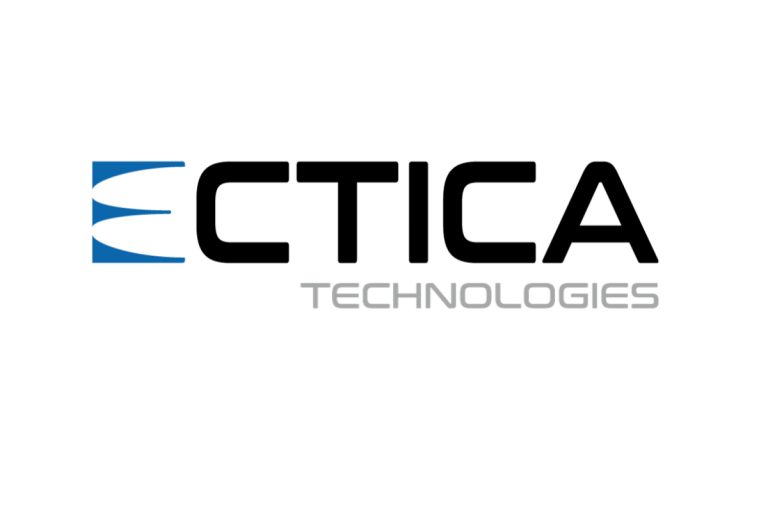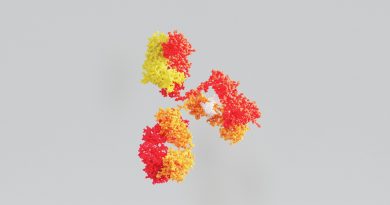Pfizer’s COVID-19 Oral Antiviral Candidate 89% Effective in Phase 2/3 Study
The novel COVID-19 investigational oral antiviral treatment PAXLOVID™ (PF-07321332; ritonavir) by Pfizer, was found to reduce the risk of hospitalization or death by 89% in an interim analysis of the Phase 2/3 EPIC-HR study.
PAXLOVID™ reduces the risk of hospitalization or death by 89%
In the Phase 2/3 EPIC-HR (Evaluation of Protease Inhibition for COVID-19 in High-Risk Patients) randomized, double-blind study PAXLOVID™ demonstrated strong positive results compared to placebo participants reducing the risk of hospitalization or fatality by 89% in non-hospitalized high-risk adults diagnosed with COVID-19. Through Day 28, no fatalities were observed in the PAXLOVIDTM group, compared to 10 deaths in the placebo group. Pfizer now intends to submit the data as soon as feasible as part of its continuous rolling submission to the FDA for an Emergency Use Authorization (EUA).
The Chairman and CEO of Pfizer, Albert Bourla, tweeted:
The Phase 2/3 EPIC-HR study results
In patients treated within three days of symptom onset (primary endpoint), the scheduled interim analysis revealed an 89% reduction in the risk of COVID-19-associated hospitalization or death from any cause compared to placebo. Moreover, only 0.8% of patients who received PAXLOVIDTM were hospitalized through Day 28 following randomization (3/389 hospitalized with zero fatalities), compared to 7.0% of patients who received placebo and were hospitalized or died (27/385 hospitalized with 7 subsequent deaths). The research outcomes demonstrated significant statistical importance (p<0.0001).
Patients treated within five days of symptom onset experienced similar reductions in COVID-19-related hospitalization or death. Only 1.0% of patients who received PAXLOVIDTM were hospitalized through Day 28 following randomization (6/607 hospitalized, with no deaths), compared to 6.7 percent of patients who received a placebo (41/612 hospitalized, with 10 subsequent deaths), with high statistical significance (p0.0001). Patients who received PAXLOVIDTM had no fatalities through Day 28 in the whole trial group, in comparison to 10 (1.6 percent) deaths among patients who received placebo.
Due to the overwhelming efficacy demonstrated in these results, Pfizer will cease further enrollment in the study and plans to submit the data as part of its ongoing rolling submission to the US FDA for Emergency Use Authorization (EUA) as soon as possible, based on the recommendation of an independent Data Monitoring Committee and in consultation with the US Food and Drug Administration (FDA).
Albert Bourla made an official press statement:
“Today’s news is a real game-changer in the global efforts to halt the devastation of this pandemic. These data suggest that our oral antiviral candidate, if approved or authorized by regulatory authorities, has the potential to save patients’ lives, reduce the severity of COVID-19 infections, and eliminate up to nine out of ten hospitalizations. Given the continued global impact of COVID-19, we have remained laser-focused on the science and fulfilling our responsibility to help healthcare systems and institutions around the world while ensuring equitable and broad access to people everywhere.”
The first of its kind COVID-19 oral antiviral SARS-CoV-2-3CL protease inhibitor
Upon successful approval, Pfizer’s revolutionary PAXLOVID™ would be the first oral antiviral of its kind, a specifically designed SARS-CoV-2-3CL protease inhibitor. The 3CL protease (3CLpro) is the main protease of the SARS-CoV-2 virus, which is responsible for viral replication.
Pfizer’s oral antiviral may be prescribed as an at-home therapy
Following completion of the remaining EPIC clinical research program and subject of approval or authorisation, Pfizer’s oral antiviral might be prescribed more widely as an at-home therapy to help reduce deteriorations, hospitalizations, and fatalities, as well as minimize the risk of infection following exposure, among adults. It has shown substantial antiviral action in vitro against circulating versions of concern, as well as other known coronaviruses, indicating that it might be used to treat a variety of coronavirus mutations.
Mikael Dolsten, MD, PhD., Chief Scientific Officer and President, Worldwide Research, Development and Medical of Pfizer stated:
“All of us at Pfizer are incredibly proud of our scientists, who designed and developed this molecule, working with the utmost urgency to help lessen the impact of this devastating disease on patients and their communities. We’re thankful to all of the patients, investigators, and sites around the world who participated in this clinical trial, all with the common goal of bringing forth a breakthrough oral therapy to help combat COVID-19.”
Enrollment for the EPIC-HR Phase 2/3 research commenced in July 2021. The Phase 2/3 EPIC-SR (Evaluation of Protease Inhibition for COVID-19 in Standard-Risk Patients) and EPIC-PEP (Evaluation of Protease Inhibition for COVID-19 in Post-Exposure Prophylaxis) studies, which began in August and September 2021 respectively, were not included in this interim analysis and are ongoing.
About the Phase 2/3 EPIC-HR Study Interim Analysis
The primary analysis of the interim data set evaluated data from 1219 adults who were enrolled by September 29, 2021. At the time of the decision to stop recruiting patients, enrollment was at 70% of the 3,000 planned patients from clinical trial sites across North and South America, Europe, Africa, and Asia, with 45% of patients located in the United States.
The primary assessment involved analysis of interim data from 1219 adult participants enrolled by 29 September 2021. So at the beginning of the procedure to discontinue recruiting patients, 70% of the 3,000 intended patients had been enrolled from clinical trial locations in North and South America, Europe, Africa, and Asia, with 45% of patients based in the United States. Participants who were enrolled had a laboratory-confirmed diagnosis of SARS-CoV-2 infection with mild to moderate symptoms during a five-day period, and they had to have at least one feature or underlying medical condition linked to an elevated risk of severe disease from COVID-19. PAXLOVIDTM or placebo were given orally every 12 hours for five days to each patient who was randomized (1:1).
About the Phase 2/3 EPIC-HR Study Safety Data
The safety data evaluation included a larger cohort of 1881 EPIC-HR patients whose data was accessible at the time of the study. Both, PAXLOVIDTM (19%) and placebo (21%) had similar treatment-related adverse events, with the majority of them being minor.
About PAXLOVID™ (PF-07321332; ritonavir) and the EPIC Development Program
PAXLOVID™ is an investigational SARS-CoV-2 protease inhibitor antiviral therapy, specifically designed to be administered orally so that it can be prescribed at the first sign of infection or at first awareness of exposure, potentially helping patients avoid severe illness which can lead to hospitalization and death.
PF-07321332 is designed to block the activity of the SARS-CoV-2-3CL protease, an enzyme that the coronavirus needs to replicate. Co-administration with a low dose of ritonavir helps slow the metabolism, or breakdown, of PF-07321332 in order for it to remain active in the body for longer periods of time at higher concentrations to help combat the virus.
PF-07321332 inhibits viral replication at a stage known as proteolysis, which occurs before viral RNA replication. In preclinical studies, PF-07321332 did not demonstrate evidence of mutagenic DNA interactions. Pfizer initiated the EPIC-HR study in July 2021 following positive Phase 1 clinical trial results and continues to evaluate the investigational antiviral in additional EPIC studies.
In August 2021, Pfizer initiated the Phase 2/3 EPIC-SR to evaluate efficacy and safety in patients with a confirmed diagnosis of SARS-CoV-2 infection who are at standard risk (i.e., low risk of hospitalization or death). EPIC-SR includes a cohort of vaccinated patients who have an acute breakthrough symptomatic COVID-19 infection and who have risk factors for severe illness. In September, Pfizer initiated the Phase 2/3 EPIC-PEP to evaluate efficacy and safety in adults exposed to SARS-CoV-2 by a household member.
About Pfizer’s Commitment to Equitable Access
Pfizer is committed to working toward equitable access to PAXLOVID™ for all people, aiming to deliver safe and effective antiviral therapeutics as soon as possible and at an affordable price. If this candidate is successful, during the pandemic, Pfizer intends to offer its investigational oral antiviral therapy through a tiered pricing approach based on the income level of each country to promote equity of access across the globe.
High and upper-middle-income countries will pay more than lower-income countries. The company has entered into advance purchase agreements with multiple countries and is in negotiations with several others. Pfizer has also begun and will continue to invest up to approximately $1 billion to support the manufacturing and distribution of this investigational treatment, including exploring potential contract manufacturing options to help ensure access across low- and middle-income countries, pending regulatory authorization.
The company is working to ensure access for its novel antiviral candidate for those most in need around the world, pending successful trial results and regulatory approval.
Recommended Companies
Ad
More Headlines







